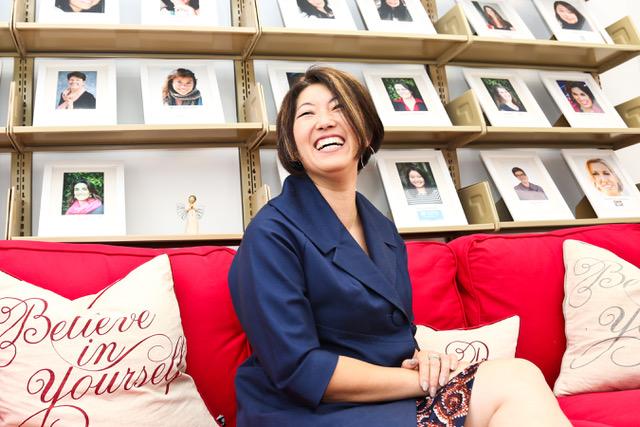SILICON VALLEY — By now, most of us are familiar with the “Me Too” movement that started as a hashtag in October 2017 to demonstrate the commonness of sexual assault and harassment, predominantly in the workplace and overwhelmingly experienced by women. It exposed what some have come to know as ordinary everyday experiences and continues to shake up workplace environments all over the country, not just in the shadows of the Hollywood glitz and glam. In the midst of this unpleasant narrative though, comes Ari Horie, Founder and CEO of the Women’s Startup Lab, a Silicon Valley accelerator for female entrepreneurs, and she has a new Me Too movement she hopes will bring a more positive light into the female experience.
“Everybody loves success,” Horie said. “And so, having more success stories, it allows us to say, ‘wow despite this me too horrible story that we have to go through — me too, yet, we succeeded’. And [the] more success that people get to hear, [the] more [it will] neutralize the negative feelings towards women in the business arena.”
This is the sentiment that Horie expanded upon and pushed forward at the March 16 pitch event showcase at the end of their spring accelerator. It is the idea that upon hearing of the success of their male counterparts, women in business will be able to stand up and say, “Yeah, me too.”
“The Me Too movement is important and has been instrumental in giving voice to women that have suffered sexual harassment and assault,” said Dawn Leaks, CEO of Lioness For The Female Entrepreneur, a media company helping women launching high-growth startups. “There is a chance that a new Me Too movement would either be lost in the current one or detract from the original movement’s purpose. One thing is certain, for female entrepreneurs, our companies are underfunded and underexposed and operating with limited resources. Mainstream exposure for our stories, voices and successes is a good thing.”
While Horie acknowledges the importance of the original meaning behind Me Too, she hopes that by using it also in a positive spin on success and achievement will serve as a reminder to women of their strength and capabilities.
“We’re designed to go through the most cruel things,” Horie said. “But also, we can do the most amazing things.”
She continued, “When you look at the psychological issue with this unconscious bias we have, we have to talk about it and the more you become aware the more you can have a choice. If you’re not aware you never have a choice anyway. “If we let it die, just talking about the issue, men continue to feel they’re the problem, they’re the blame and they continue to say, ‘yeah I support’, but they have no clue. And I think it’s time for us to take that energy and then turn it into ‘here’s what you can [do]’ and contribute to “me too” success.”
And that success is something Horie works to foster within the many women who come in and out of her startup program that she started about five years ago when she noticed that many of the well known and successful accelerator programs just happened to be designed by male leaders.
You’re supposed to give up three months of your life to be here in Silicon Valley and many of the women that wish they could be here, they can’t really go away for three months and of course in a flippant way, you’d hear, ‘if you can’t even commit to three months here, then you don’t deserve our investment’ and that continued to be the way,” explained Horie. “And in this way if you don’t fit in, you can’t make it and I think that that whole system itself creates systematic issues for women not cutting through and succeeding and thriving — and those who can only make it, act like and run like men, can thrive in some level and so we wanted to design a way that accommodated those different models.”
So Horie created a model that is now the Women’s Start Up Lab, a 12-month program specifically fashioned for women entrepreneurs, where they are invited to stay in a residential home for two weeks, be surrounded by Silicon Valley influencers who help them work on attracting investors and building upon their ideas and companies. After the initial two weeks, they return six months later and stay for four days of strategy and fund-building. They are also afforded an additional two weeks to stay at the house while doing any further fundraising in Silicon Valley.
“We’re really focusing on the sister strategy of the startup growth,” Horie said. “Hito is the philosophy that we live by — it is a connecting of people together to be the support structure. So, female entrepreneurs come here, they live together to develop this strong bond that they stand for each other. So it’s all residential, that’s why we have a unique house to make those very intensive, immersive programs that allow people to bond and support each other beyond the program.”
Horie and the Women’s Start Up Lab have set their sights on being “the ultimate place for women to come and create entrepreneurship.” It is their belief that despite the hardships, hurdles and societal stereotypes, women still can stand up and become leaders. And right now, they want you to think, ‘me too.’






[…] inspires the next wave of innovation and catalyzes change,” said Ari Horie, the Founder of the Women’s Startup Lab. “Half of the population’s venture ideas are not getting funded. This is like doing business […]